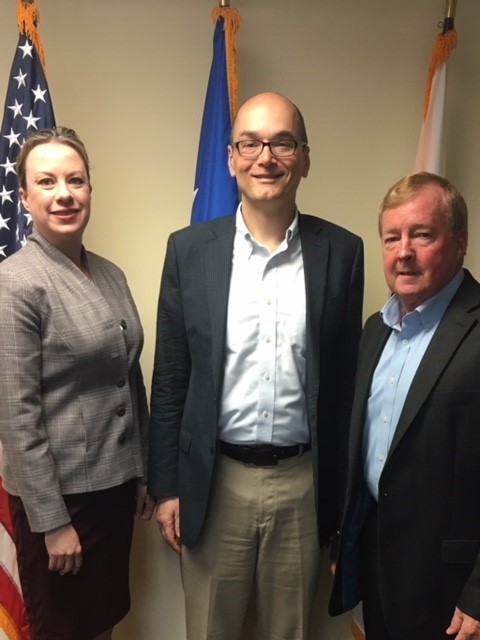In the mid 1980s several heroes of the fight against homelessness emerged. One of them was our founder, Karen Olson. Another was Maria Foscarinis, who was an architect of the McKinney-Vento Act, the most important legislation relating to homelessness ever written.
Each year, Maria’s organization—the National Law Center on Homelessness and Poverty (NLCHP)—hosts a conference called “Housing, not Handcuffs.”
As allies, we regularly participate in each other’s national conferences, and late last month I spent time in Washington DC with other leaders in the field, discussing and exploring ways to take the burden of the law off people experiencing homelessness.
I witnessed some tremendous keynotes and sessions, but the issue at hand was most clearly articulated by the advocate Ibrahim Malik, who is formerly homeless: “Homeless people are not the problem; the problem is the problem.”
Not having a home is not illegal, yet people—singles and families alike—are repeatedly subject to law enforcement simply because they are homeless.
I took advantage of my time in DC by also meeting with several other organizations, government bodies, and the news media. I even visited six congressional offices—all of which have Family Promise Affiliates in their district—to discuss the Homeless Children and Youth Act (HCYA).
I took pictures at each office of something iconic of the district and the state—can you identify them?
[envira-gallery id=”7225″]
Why is the HCYA important—take this one example from Frederick County, MD: Last year, with 40,000 students in its school districts, 1,000 experienced homeless, 200 of whom were unaccompanied youth. HCYA will enable us to properly count them and their families, while also prioritizing them based on vulnerability.
It is critical that we continue addressing policies that impact low-income families at risk of homelessness. We can provide shelter, case management, and community—and we do that very well—but we also have to change policy so families have more opportunity and security.
Finally, my two oldest kids are in DC this summer—so we enjoyed dinner at an Indian restaurant in Adams Morgan.



